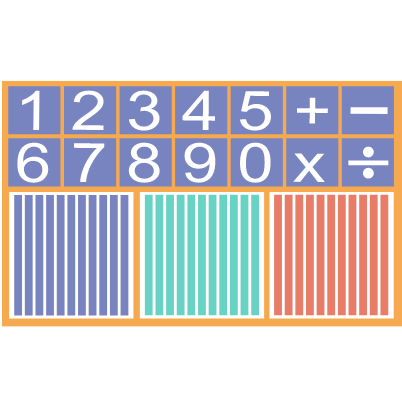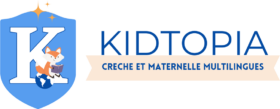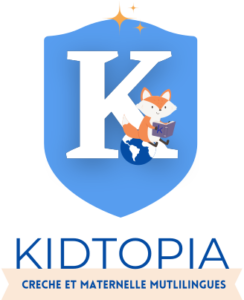The nursery school
L’école maternelle Kidtopia est une école privée multilingue, un choix éducatif de qualité

L’école maternelle multilingue Kidtopia est une école privée hors contrat et est soumise à l’autorisation d’ouverture du rectorat.
Our multi-level kindergarten class can accommodate a maximum of 18 children, which is a real advantage when it comes to offering your children a unique experience. We have a 50m2 classroom, a canteen and a courtyard with a vegetable garden. The meals provided are organically grown.
Our commitment: to encourage them to want to learn, to develop their self-confidence and their awareness of the world.
We respect the curriculum and the requirements of the official French education bulletin, while following the best of alternative teaching methods such as those of Maria Montessori and Freinet.
La classe de maternelle multi-niveaux sera accessible dès 2 ans et demi jusqu’à 6 ans dans un environnement 100% immersif Français/Anglais. Un professeur de langue latine (italien et espagnol) vient compléter cet apport une fois par semaine.
KIDTOPIA nursery school
Tuition fees depend on your income. Do not hesitate to contact us for a simulation. It is also possible to obtain a grant.
In addition, on Wednesdays and during the school holidays, we offer a multilingual leisure centre open to all.
All these elements contribute to offering children a rich and stimulating educational experience that encourages them to be open to the world from an early age.
The structure
A structure adapted to your needs and those of your child

The educational programme
Our school offers a solid educational programme which, in addition to the general subjects taught in nursery, includes the learning of several languages. We scrupulously respect the requirements of the French national education system when it comes to the transmission of common core knowledge.
Our programme is specifically designed for nursery classes and our aim is to encourage language acquisition in a gradual and natural way.

A competent teaching team
The school has a competent teaching team, qualified and experienced in multilingual teaching. The teachers recruited have a command of the different languages taught (French, English, Spanish and Italian) and are trained in teaching methods adapted to early language learning. They are sensitive to cultural diversity and able to create an inclusive and stimulating environment for children.

Resources and equipment
Our school also has Montessori-inspired teaching resources and materials adapted to nursery education. Books, games, audiovisual aids, interactive activities, linguistics - we have all the tools we need to help our pupils flourish.

Regular monitoring
Quality teaching means regular monitoring of children's progress. We put in place caring assessment methods adapted to each subject taught to evaluate skills acquired objectively. This ensures that children achieve the objectives set by the national education authorities and provides feedback to parents on their children's progress.
However, it is important to us to stress that each child develops at his or her own pace.
The educational project
Our educational project will be based on the humanist and universalist foundations of Montessori Montessori and other alternative teaching methods.

The Montessori approach
The Montessori approach emphasises autonomy, self-discipline and independent learning. Through the use of specific teaching materials, children are encouraged to explore, experiment and learn at their own pace. We will provide a prepared environment, where each child is free to choose his or her activities and explore different areas of learning, while being guided by teachers trained in the Montessori method.

The multilingual dimension
Our school focuses on language acquisition and intercultural communication. We teach French, English, Spanish and Italian. It will offer a comprehensive multilingual programme, where children will have the opportunity to learn several languages from an early age. With our multilingual teacher and teaching assistant, we will create an immersive environment where each language will be used naturally in daily activities, conversations, games and social interactions. This will enable children to develop strong language skills and become global citizens open to cultural diversity.

